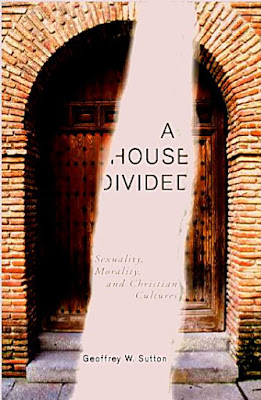 |
| AP Photo by Nick Ut from the Kim Foundation |
Kim Phuc made headlines again as she did in 1972 (June 8). Facebook censored the photo of the naked 9-year-old running from a napalm bomb (The Independent). The painful burns covered nearly two-thirds of her body.
The image that went round the world was credited as a factor toward ending America's involvement in the war (CNN).
But Kim battled pain, anger, and bitterness for years. At age 19, she converted to Christianity and began the transformation of becoming a new woman. She formed a foundation dedicated to healing the wounds of others. She now goes throughout the world to tell her story of love and forgiveness.
As a part of her journey, Kim visited the Vietnam War Memorial. She met Captain John Plummer, a pilot linked to the air strike on her village. Here, at the Memorial Wall, Kim expressed forgiveness to John which was a part of her reconciliation.
She has told her story at meetings, in a book, and on film. Her road to recovery illustrates many lessons that deserve to be retold.
Kim Phuc's story on AMAZON
Morality and War
It is rather ironic that Kim's photo should be banned by Facebook because for many, the message of the photo captures the immorality of war, an act that destroys the lives of so many. Our history as humans suggests we will not soon stop killing other humans. We can hope that the long peace among major powers since World War II prevails. We need constant reminders of the damage done to people like Kim. Not everyone in a combat zone is the enemy. But we can make enemies when we hurt those who have no intention of hurting us.
But we must also be mindful of the terrible toll war takes from the soldiers who carry out the aggressive strategies of a nation's leaders. Post Traumatic Stress Disorder is often a lifelong battle with the past that continually punctures the present. Not only do soldiers suffer pain and die by suicide but their families suffer as well. Warriors and their loved ones pay a steep price for the decisions of leaders about a nation's interests.
Morality and Nudity
Of course, the reason for the 2016 story is the banning of Kim's photo from Facebook based on nudity. Facebook was slammed for their policy. But should we not care about what images are posted online? How does context work to change a photo of a nude child into an internationally recognized moral message? In her story, Kim relates that she was initially embarrassed by the photo. Who wouldn't be?
Few people are overly concerned about nudity in art. But conservative Christians and people in other religions are concerned about nudity. They preach modesty in dress and set limits on acceptable art in their schools and organizations. Normally a picture of a naked girl would be prohibited. We want to protect our young from exploitation. Our awareness of sex trafficking has been heightened by news reports. In the case of Kim's photo, the moral judgment has somehow shifted from what's in the picture to the story behind the picture.
Morality, Forgiveness, and Reconciliation
In my view, morality is about right relationships. For Christians, morality begins with a right relationship with God and extends toward others.
Harmful acts break relationships --sin in religious language. Forgiveness is the quintessential Christian way of repairing the damage from the pain of the past. As in Kim's life, forgiveness takes time. And as in Kim's case, forgiveness works to promote healing and concomitantly reduce anger.
Reconciliation is a different process. Kim was able to make that journey as well. Forgiveness frees us from the past and can serve as a catalyst for reconciliation but it's not always safe to reconcile with those intent on continuing abuse.
Kim was able to grant forgiveness and participate in reconciliation. But remember the soldiers with PTSD. Forgiveness and reconciliation interventions is often part of their healing as well. Forgiveness and reconciliation won't cure PTSD but it may help soldiers deal with anger and guilt.
In addition to the conflicts around the world, Christians and others are divided over social-moral issues, which has been part of my focus in the past few years in writing A House Divided and editing Christian Morality. Clearly, forgiveness and reconciliation are ways to bring divided people together and promote peace.
There are more lessons to learn from Kim's journey. I'm grateful that the news events of the week brought her story back.
Heads up: My post ends here and ads for my books follow.
A House Divided: Sexuality, Morality, and Christian Cultures.
Please check out my website www.suttong.com
and see my books on AMAZON or GOOGLE
STORE
Also,
consider connecting with me on FACEBOOK Geoff W. Sutton
TWITTER @Geoff.W.Sutton
You can read many published articles at no charge:
Academia Geoff W Sutton ResearchGate
Geoffrey
W Sutton


Comments
Post a Comment